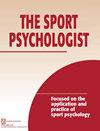探讨女大学生运动员应对持续性脑震荡症状的经验
IF 1.2
4区 心理学
Q3 HOSPITALITY, LEISURE, SPORT & TOURISM
引用次数: 0
摘要
脑震荡会导致大量躯体、认知和/或情绪症状,以及身体和行为改变以及平衡、认知和睡眠障碍。此外,一些脑震荡运动员可以长时间经历这些症状、变化和干扰。本定性研究探讨了5名持续脑震荡症状超过6周的女大学生运动员的应对技巧。我们对访谈数据的分析表明,运动员在整个康复过程中使用了以情绪为中心的应对策略,如回避和接受。此外,缺乏对伤害的控制,缺乏针对症状的治疗方案,以及他们获得的社会支持类型影响了他们的应对能力。这些结果增加了有限但不断增长的关于运动相关脑震荡心理学的文献,特别是在确定运动员可能用于应对和管理脑震荡症状的资源类型方面。本文章由计算机程序翻译,如有差异,请以英文原文为准。
Exploring Female University Athlete Experiences of Coping With Protracted Concussion Symptoms
Concussions result in a multitude of somatic, cognitive, and/or emotional symptoms as well as physical and behavior changes and disturbances in balance, cognition, and sleep. Moreover, some concussed athletes can experience these symptoms, changes, and disturbances for extended periods of time. This qualitative study explored the coping skills used by five female university athletes who suffered persistent concussion symptoms for more than 6 weeks. Our analysis of the interview data indicated that the athletes used emotion-focused coping strategies, such as avoidance and acceptance, throughout their recovery. In addition, the lack of perceived control over their injuries, a lack of a symptom-specific treatment protocol, and the type of social support they received influenced their coping abilities. These results add to the limited, yet growing, body of literature on the psychology of sport-related concussions, particularly with respect to identifying the types of resources that athletes may use to cope and manage concussion symptoms.
求助全文
通过发布文献求助,成功后即可免费获取论文全文。
去求助
来源期刊

Sport Psychologist
医学-心理学
CiteScore
2.80
自引率
6.20%
发文量
18
审稿时长
>12 weeks
期刊介绍:
TSP is a scholarly refereed journal designed as a forum to stimulate thought and disseminate knowledge that focuses on the application and practice of sport psychology. A special emphasis of the journal is on the delivery of psychological services to practitioners such as athletes and coaches. TSP is international in scope and is receptive to diverse methodologies. TSP is published for sport psychology specialists who engage in research, teaching, and/or intervention in a variety of contexts including academic, public, and private settings. The journal is also intended for practitioners such as coaches who have training and interest in sport psychology.
 求助内容:
求助内容: 应助结果提醒方式:
应助结果提醒方式:


